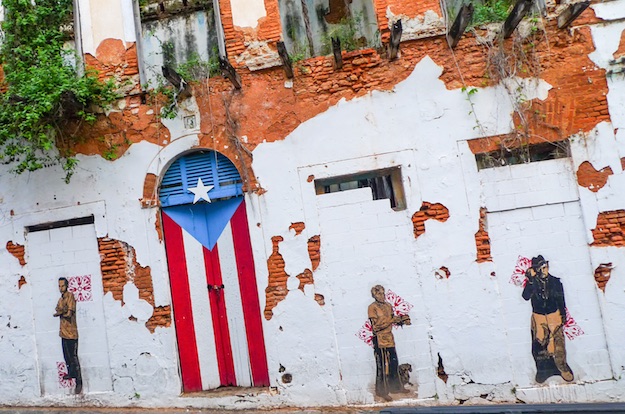Imagine that you only have access to running water every three days. That’s not so bad, given the government’s plans in response to an extreme summer drought to shut down tap water completely for up to four days at a time. To add insult to injury, imagine you still have to pay for the tap water you don’t receive, and that bottled water is subject to a recently increased 11.5 percent sales tax.
This isn’t a scene from a developing country or a stark vision of California’s future— it’s a reality that 2.5 million U.S. citizens, including my 80-year-old grandfather, are living right now. It is a reality that would be unacceptable in any state in the union. The problem is that my grandfather doesn’t live in the drought-stricken west coast, but in Puerto Rico, a territory belonging to but not part of the United States.
Puerto Rico is a territory of 3.5 million American citizens that pay federal taxes—save for federal personal income tax. It is a territory from which over 200,000 citizens have fought in every war under the American flag since World War I, but whose citizens can’t vote for the president that sends them abroad. It is a territory whose lone representative in Congress can’t cast a vote on the House floor, and—crucially—whose municipalities are barred from a common American undertaking: filing for bankruptcy.
When American municipalities are unable to repay their debts—to employees, creditors, pension funds, or other obligations—they can file for Chapter 9 bankruptcy protection, a last resort to restructure and renegotiate debt, which has been critical in the aftermath of the Great Recession. The most notable example is Detroit, which declared bankruptcy in July 2013, but eight cities and counties from across the country have filed under Chapter 9 in the past four years alone.
There are countless complex reasons why Puerto Rico’s territorial status, which is at the crux of its inability to file for municipal bankruptcy protection, has not been defined in 117 years. But the end result has been that circumstances deemed unacceptable for U.S. citizens on the mainland are all too common on the island. Whether that’s the lack of voting rights, the obscenely high cost of staple goods due to the Jones Act, or the lack of Chapter 9 protection.
On Monday, Puerto Rico missed a $58 million payment to its own Public Finance Corporation, the government-owned corporation that issues bonds. This was part of $72 billion debt that cannot be restructured. The hedge funds that have profited from the territory’s debt suggest that Puerto Rico, where education spending per student is more than $2,000 lower than the mainland average even as 56 percent of the school children live in poverty, should spend even less on education in order service their debt. Without restructuring, it is Puerto Rico’s people who are on the hook.
Congress has let HR 870, which would afford Puerto Rican municipalities the same bankruptcy protection mainland cities and counties have, languish. And it’s true that passing it won’t solve all of the island’s troubles. It won’t end a record drought or hasten the arrival of shipborne desalinization plants to help mitigate its effects. It won’t reverse brain drain that has drawn Puerto Rico’s best and brightest to the mainland in droves in search of job opportunities and security. It won’t undo decades of economic mismanagement and loss of industry. It won’t give Puerto Ricans voting rights and equal representation in Congress. But it would be a start. Until then, 3.5 million Americans will continue to live separate and unequal.






